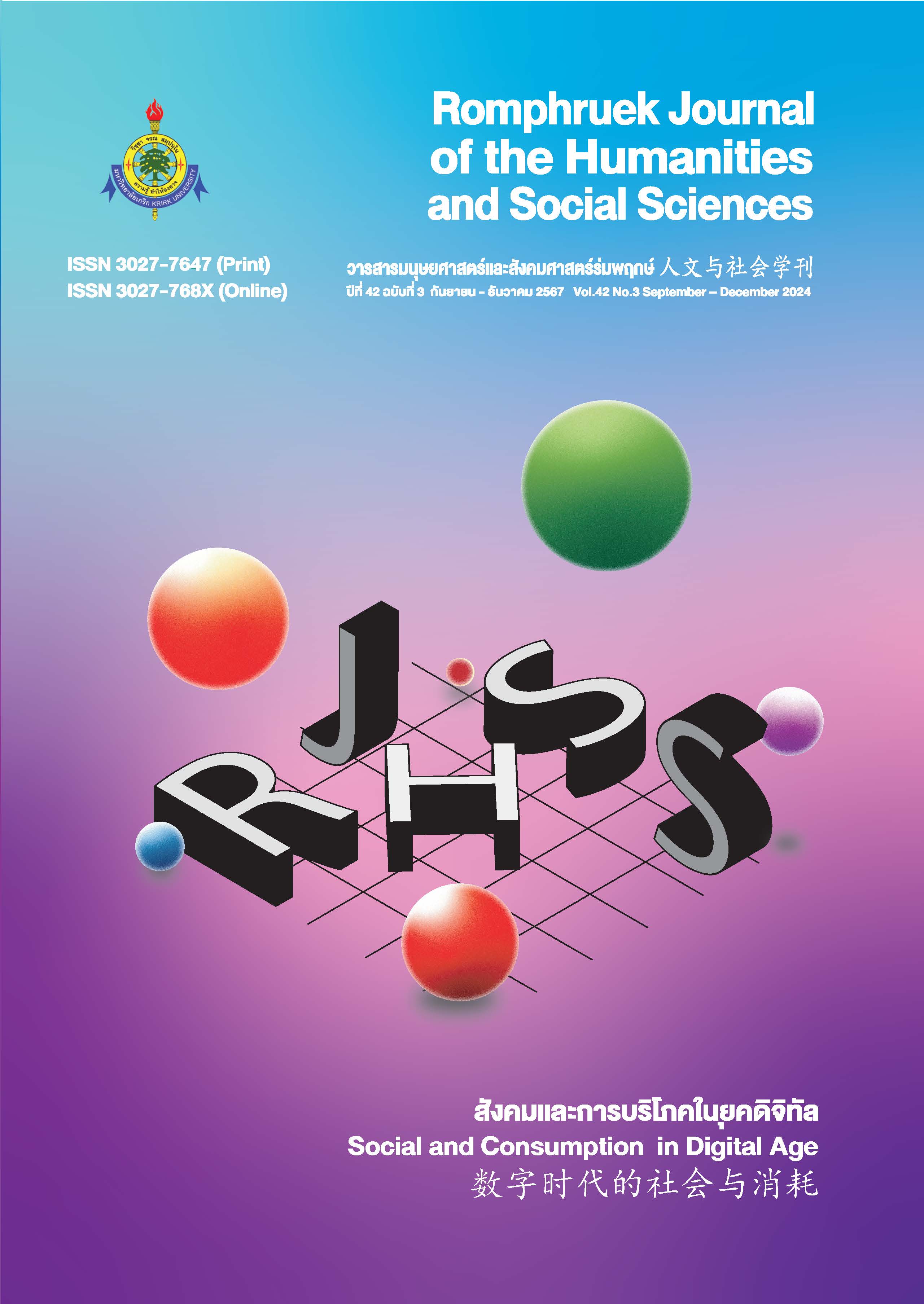The study of factors influencing the success of implementing the 10,000 baht digital money policy from the perspective of people in Phra Nakhon Si Ayutthaya Province
Main Article Content
Abstract
The research aims to study policy factors that influence the success of the Thai government's 10,000 baht digital currency policy in Phra Nakhon Si Ayutthaya Province. Using quantitative research using an online questionnaire with a sample size of 324 samples, the data analysis method was multiple regression. The results found factors are affecting the success of the Thai government's 10,000 baht digital wallet policy in Phra Nakhon Si Ayutthaya Province. If the policy is successful, it must rely on factors comprising two variables: the response to the policy from the citizens (0.553) and the benefit of the policy (0.260). This analysis can predict the success of the government's 10,000 baht digital wallet policy in Phra Nakhon Si Ayutthaya Province at 68.2 percent.
Article Details

This work is licensed under a Creative Commons Attribution-NonCommercial-NoDerivatives 4.0 International License.
Every article published in the Romphruek Journal of the Humanities and Social Sciences is the opinion and point of view of the authors. Thery're not the viewpoint of Krirk University or the editored department. Any part or all of the articles for pablication must be clearly cited.
References
สำนักทะเบียนกลาง. (2566, 23 มกราคม). จำนวนราษฎรทั่วราชอาณาจักร ตามหลักฐานการทะเบียนราษฎร ณ วันที่ 31 ธันวาคม 2565. กรมการปกครอง กระทรวงมหาดไทย.https://www.dopa.go.th/news/cate1/view8263.
Ahmad, S., & Sadu, W. (2017). Measurement of Local Government Performance With Balanced Scorecard Approach in South Tangerang City, Indonesia. First International Conference on Administrative Science, Policy and Governance Studies (1st ICAS-PGS 2017), 228-240.
Ecaterina, C. U., Liliana, M. M., Drago, S. C., and Andi, M. (2021). Political party balanced scorecard concept for analysis of the performance management of the activity of political parties in Romania. Journal of Public Administration Finance and Law, 10(22), 277-300.
Elin, L. and Sara, N. S. (2008). The balanced scorecard at Skellefteå municipality (Dissertation).
[Unpublished Bachelor Thesis]. Umeå University.
Fatile, J., Yemisi, O., Tomilayo, A.I., & Sanni, O.K. (2019). Improving public agency performance using balanced scorecard in Lagos internal revenue service (LIRS). International Journal of Business and Economic Development, 7(1), 33-51.
Kaplan, R. S., & Norton. D. (1992). The Balanced Scorecard: Measures that Drive Performance. Harvard Business Review, 70(1), 71–79.
Kaplan, R.S. & Norton, D.P. (1996). strategic learning & the balanced scorecard. Strategy & Leadership, 24(5), 18-24.
Rodríguez, B. M. P., López, H. A. M., and Ortiz, R. D. (2010). Implementing the balanced scorecard in public sector agencies: An experience in municipal sport services. Revista Latinoamericana de Administración, 45(2010), 116-139.
Yamane, T. (1973). Statistics: An Introductory Analysis (3rd Edition), Harper and Row.
Van, M. D. S., & Van, H. C. E. (1975). The Policy Implementation Process: A Conceptual Framework. Administration & Society, 6(4), 445-488.


